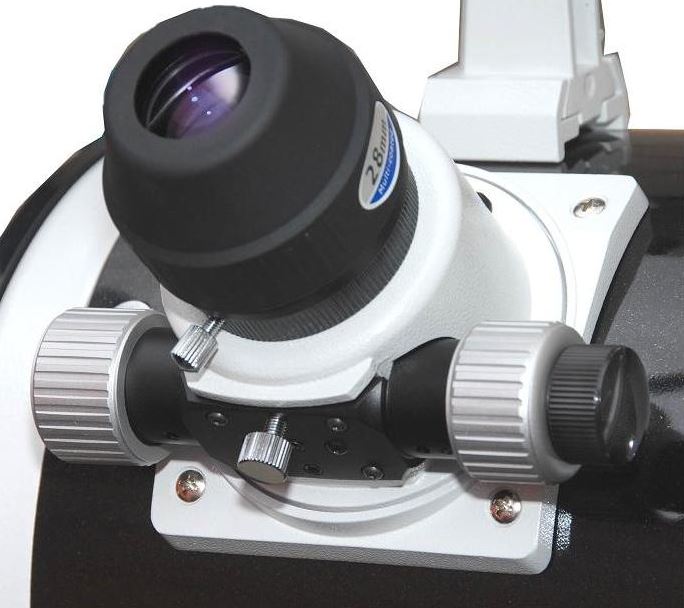Glossary | Telescope accessories | General | Type | Focuser
In every telescope, the focuser is attached close to the focal point of the light-gathering optic. Eyepieces can be connected to the focuser. For astrophotography, a camera is attached to the focuser, and the focuser serves to focus the camera.
 Skywatcher Crayford focuser on a Newtonian telescope
Skywatcher Crayford focuser on a Newtonian telescopeEyepieces and cameras are usually equipped with connector sockets. Two diameters have been established for the connector socket, which are specified in inches: 1.25" = 31.8mm and 2" = 50.8mm.
The focuser consists of two interlocking and sliding tubes, so that the eyepiece can be moved into focus using a small wheel. Not only eyepieces can be attached to focusers, but cameras as well.
Precise focusing is especially important for astrophotography. Therefore, high-quality focusers with reduction adjustment should be used for this application. For astrophotography, many focusers also have a connector thread, so that the camera is screwed into place instead of being be plugged in.
Simple focusers are adjusted using a rack and pinion mechanism. In the higher quality versions, this rack and pinion is angled and made of brass. Instead of a rack and pinion, the adjustment can also be made by exerting pressure on a special surface. Such focusers are usually referred to as Crayford focusers.
Helical focusers work in a completely different way. Here, the adjustment is made by rotating the inner barrel using a longitudinal screw (helix). One advantage is that a rotary knob is not necessary, which can get in the way, for example, of a guidescope.
As a rule, focusers can also be motorised. This improves focusing accuracy and also allows the remote operation of the telescope.
